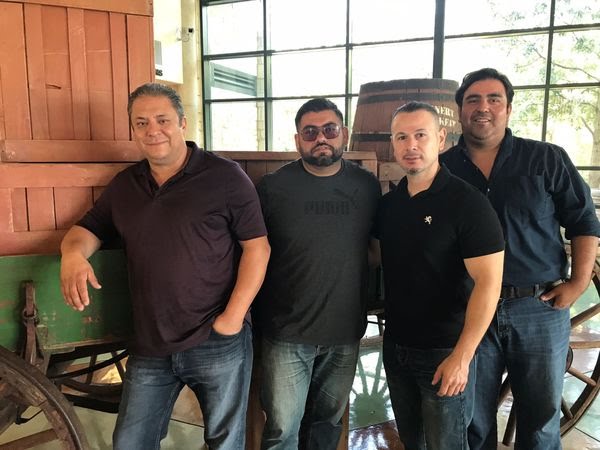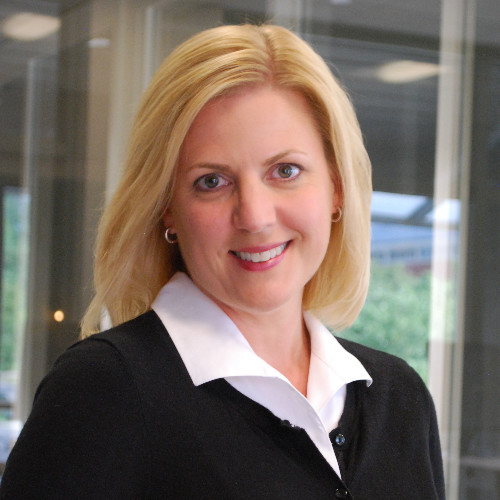Federally Qualified Health Center (FQHC)
See the following -
Community Health Network in Houston Leverages Open Source Tech to Help Victims of Hurricane Harvey
 Undaunted by the devastation caused by Hurricane Harvey in Houston, the Stephen F. Austin Community Health Network (SFA) responded to the crisis by leveraging open source technology to reach out to their patients and victims of the hurricane in areas of Texas that are virtually inaccessible. The Health Network, a Federally Qualified Health Center (FQHC) covering Brazoria County, is one of the areas hardest hit by Hurricane Harvey and currently recovering. Using an advanced cloud-based version of the OpenEMR software, the SFA Community Health Network has been able to treat patients in clinics physically unreachable by their medical providers.
Undaunted by the devastation caused by Hurricane Harvey in Houston, the Stephen F. Austin Community Health Network (SFA) responded to the crisis by leveraging open source technology to reach out to their patients and victims of the hurricane in areas of Texas that are virtually inaccessible. The Health Network, a Federally Qualified Health Center (FQHC) covering Brazoria County, is one of the areas hardest hit by Hurricane Harvey and currently recovering. Using an advanced cloud-based version of the OpenEMR software, the SFA Community Health Network has been able to treat patients in clinics physically unreachable by their medical providers.
- The Future Is Open
- Login to post comments
Hurricanes Harvey and Irma Draw the Line - Time for the US to Embrace Open Source Emergency and Disaster Response
 For nearly 20 years now the global open source community and applications have been a keystone to disaster relief efforts around the world. The enormous number of disaster relief applications and knowledge that has been developed through all these years, should, and needs to be leveraged in the current crisis. For that reason, Open Health News is starting a series of articles to highlight some of the most important solutions. A substantial portion the open source applications for emergency and disaster response that exist are actually already on the news website in the form of articles and resource pages.
For nearly 20 years now the global open source community and applications have been a keystone to disaster relief efforts around the world. The enormous number of disaster relief applications and knowledge that has been developed through all these years, should, and needs to be leveraged in the current crisis. For that reason, Open Health News is starting a series of articles to highlight some of the most important solutions. A substantial portion the open source applications for emergency and disaster response that exist are actually already on the news website in the form of articles and resource pages.
- The Future Is Open
- Login to post comments
Mobile Medical Clinic Arrives To Houston To Help with Disaster Response
 Stephen F. Austin Community Health Center (SFACHC) is responding to the urgent need for medical help in Brazoria and Galveston communities with the help of Clinica Sierra Vista, a community health center in California. Clinica Sierra Vista is sending a fully equipped medical and dental mobile unit to assist SFACHC care for the displaced residents along the Texas coast where catastrophic Hurricane Harvey flooded homes and vehicles and is preventing the sick and vulnerable from accessing necessary primary care. Read More »
Stephen F. Austin Community Health Center (SFACHC) is responding to the urgent need for medical help in Brazoria and Galveston communities with the help of Clinica Sierra Vista, a community health center in California. Clinica Sierra Vista is sending a fully equipped medical and dental mobile unit to assist SFACHC care for the displaced residents along the Texas coast where catastrophic Hurricane Harvey flooded homes and vehicles and is preventing the sick and vulnerable from accessing necessary primary care. Read More »
- Login to post comments
Stephen F. Austin Community Health Center Thanks Clinica Sierra Vista for Loan of Mobile Medical Unit to Care for Victims of Hurricane Harvey
 Stephen F. Austin Community Health Center (SFACHC) extends many thanks to Clinica Sierra Vista and its excellent staff for the assistance and kindness our friends to the west bestowed on SFACHC and the residents of Brazoria County in the aftermath of Hurricane Harvey. The generous loan of the Bakersfield, California community health center’s Mobile Unit is making it possible for SFACHC to provide essential primary health care, including tetanus shots, to evacuees staying in shelters established after Hurricane Harvey’s record rainfall flooded homes in Brazoria County and neighboring Galveston County.
Stephen F. Austin Community Health Center (SFACHC) extends many thanks to Clinica Sierra Vista and its excellent staff for the assistance and kindness our friends to the west bestowed on SFACHC and the residents of Brazoria County in the aftermath of Hurricane Harvey. The generous loan of the Bakersfield, California community health center’s Mobile Unit is making it possible for SFACHC to provide essential primary health care, including tetanus shots, to evacuees staying in shelters established after Hurricane Harvey’s record rainfall flooded homes in Brazoria County and neighboring Galveston County.
- Login to post comments
Stephen F. Austin Community Health Network (SFACHN)
 Stephen F. Austin Community Health Network (SFACHN) was established in 2008 to provide accessible and affordable healthcare for people of Brazoria County. That year, the Center had one health care provider with three exam rooms providing care at the Adoue Family Health Center. Since that time, the Center has grown substantially, adding a dental department, women’s health care, behavioral health counselors, and psychiatry.
Stephen F. Austin Community Health Network (SFACHN) was established in 2008 to provide accessible and affordable healthcare for people of Brazoria County. That year, the Center had one health care provider with three exam rooms providing care at the Adoue Family Health Center. Since that time, the Center has grown substantially, adding a dental department, women’s health care, behavioral health counselors, and psychiatry.
- Login to post comments
White Paper: Stop the Referral Problem - Building Digital Care Transitions that Reach Your Entire Network
 The healthcare industry has crossed a digital chasm-at least in part. Patient records have moved from paper to computer and many transactions, such as e-prescribing and lab orders have been automated, to accelerate workflows, minimize mistakes and reduce costs. But when it comes to sharing patient records, especially beyond the four walls of a hospital, we remain in the dark ages of paper and fax...In this paper, we will discuss our research about how referrals and care transitions are typically conducted; the financial, non-financial, and quality impacts on patient care; and near-term opportunities for leveraging technology to accelerate these processes to benefit provider organizations and to deliver a high-quality, efficient patient experience.
The healthcare industry has crossed a digital chasm-at least in part. Patient records have moved from paper to computer and many transactions, such as e-prescribing and lab orders have been automated, to accelerate workflows, minimize mistakes and reduce costs. But when it comes to sharing patient records, especially beyond the four walls of a hospital, we remain in the dark ages of paper and fax...In this paper, we will discuss our research about how referrals and care transitions are typically conducted; the financial, non-financial, and quality impacts on patient care; and near-term opportunities for leveraging technology to accelerate these processes to benefit provider organizations and to deliver a high-quality, efficient patient experience.
- Login to post comments